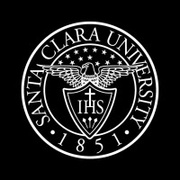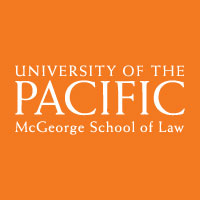Closing Date: 2nd October, 2025
Description:
Purpose:The Department of Child Studies (CHST) at Santa Clara University (SCU), a Jesuit, Catholic university, seeks applicants for a full-time, tenure-track position for Assistant Professor of Law and Advocacy with Children, Youth, and Families. SCU is a welcoming and inclusive community of teaching scholars whose work is grounded in the university's fundamental values (https://www.scu.edu/aboutscu/mission-vision-values/). Those values, which include academic excellence, social justice and community engagement, are infused with a culture of care that defines our community—upholding the dignity of all. The university draws on the many resources of the greater Bay Area, including Silicon Valley, where we are located.
Applicants may hold expertise in a range of substantive areas of research, which must be relevant to children, youth, and families. For instance, scholarship may include and/or be at the intersections of a) Immigration, migration, and citizenship, b) Tribal sovereignty and relations, c) LGBTQ+ rights and regulation, d) Health and medical care, e) Civil rights and liberties. Law and advocacy for children, youth, and families is a broad area that invites scholars with generalist and specific expertise, which will complement the existing research and teaching capacity within the Department of Child Studies. This is especially crucial as Child Studies is embedded in the most socially and economically diverse county in Northern California. We seek a faculty member who can plant scholarship roots while forging collaborative relationships with legal advocacy and clinical community partners throughout Silicon Valley who serve children, youth, and families of varied backgrounds and experiences. Further, we seek a faculty member who can prepare students through coursework and applied projects in preparation for their future work as advocates and professionals who work with communities representing a broad demographic spectrum. Because we desire a scholar who is aligned with Santa Clara University's values and strategic priorities in mind, we seek applicants who recognize systems of power and critically examine interactions between the legal system and children, youth, and families.
The successful candidate will start on September 1, 2026 and be expected to teach, engage in scholarship, and do service for the department, college, and university. SCU is on the quarter system and tenure-stream faculty are expected to teach six courses per year (two each quarter), assuming they are actively engaged in scholarship.
The College of Arts and Sciences is currently conducting a cluster hire in the area of Inequality & Social Justice. If the person hired for this position has research and teaching interests that are aligned with this program, they may be included in the Fall 2026 cohort. Participants in the cluster hiring program will receive mentoring, frequent group sessions that offer peer support, and access to an interdisciplinary intellectual community to help them with their scholarly and creative work.
Required Qualifications:
- Terminal degree (Ph.D. or J.D.) or ABD status at the time of appointment in Law, Social Welfare/Social Work, Education, Sociology, Ethnic Studies, Gender Studies, Psychology, Public Health, Philosophy or a related field.
- Demonstrated potential for effective and inclusive teaching and mentoring of a diverse undergraduate student population
- Demonstrated understanding of and commitment to scholarship and pedagogy about law and advocacy for children, youth, and families;
- Evidence of a program of research and promise of publication in the area of law and advocacy for children, youth, and families (i.e. immigration, migration, and citizenship; tribal sovereignty and relations; LGBTQ+ rights and regulation; health and medical care; civil rights and liberties);
- Demonstrated experience working within a marginalized community and/or with members of the community.
Responsibilities.
Tenure-track faculty at SCU are teaching scholars who are expected to balance teaching, research, and service. This is an in-person position. More specifically, duties include but are not limited to the following:
Teaching
Teach lower- and upper-division courses in the major and university core curriculum, as assigned by the chair, including courses such as child advocacy, advanced writing, research methods, as well as additional courses in their area of expertise. SCU is on the quarter system and a typical load is two courses per quarter assuming active engagement with research. High-quality teaching is prioritized at SCU; therefore significant faculty-student interaction is expected. The university offers many different opportunities to develop teaching skills through Faculty Development (https://www.scu.edu/provost/teaching-and-learning/faculty-development/), including regular lunchtime workshops on pedagogy, teaching and technology grants, communities of practice, teaching mentors, and a scholarship of teaching and learning faculty group.
Teaching will be evaluated according to the Teaching Effectiveness Standards and Evaluation (TESE) (https://docs.google.com/document/d/1tDuYR4jYAJ3H1_nBSn8MtH_gTKYCKQHpR0vtYuskNHs/edit?tab=t.0) document developed by each department. Ignatian pedagogy (https://www.scu.edu/provost/teaching-and-learning/faculty-collaborative-for-teaching-innovation/digital-resources-for-teaching-drt/ignatian-pedagogy/), a hallmark of Jesuit, Catholic universities, is based on the principle of cura personalis, that is, teaching the whole person. At Santa Clara University we define effectiveness in teaching as respectful, challenging, inclusive, engaging, and evidence based. Teaching Expectations and Academic Policies at SCU can be found here. (https://www.scu.edu/provost/teaching-and-learning/faculty-collaborative-for-teaching-innovation/digital-resources-for-teaching-drt/ignatian-pedagogy/)
Research
Develop a program of research at SCU that will result in meeting the Child Studies Department's established scholarship standards. Each department has collectively created a document that outlines the standards for scholarship that lead to tenure and promotion in that department. The Department of Child Studies strongly values the involvement of undergraduate students in faculty research. SCU offers significant support (https://www.scu.edu/provost/teaching-and-learning/faculty-development/new-faculty-resources/) to early career faculty in the development of their program of research. All new faculty will be assigned mentors, placed into a cohort learning community with other new faculty, and offered faculty retreats, workshops and numerous professional development opportunities to build their programs of research.
Service
Provide effective service to the Department of Child Studies, the College of Arts and Sciences, the University and the profession through contributions other than teaching and scholarship, such as service on committees, participation in professional organizations and activities, leadership, and community service performed by virtue of professional expertise or association with the university, as appropriate to rank and experience.
Teach lower- and upper-division courses in the major and university core curriculum, as assigned by the chair, including courses such as child advocacy, advanced writing, research methods, as well as additional courses in their area of expertise. SCU is on the quarter system and a typical load is two courses per quarter assuming active engagement with research. High-quality teaching is prioritized at SCU; therefore significant faculty-student interaction is expected. The university offers many different opportunities to develop teaching skills through Faculty Development (https://www.scu.edu/provost/teaching-and-learning/faculty-development/), including regular lunchtime workshops on pedagogy, teaching and technology grants, communities of practice, teaching mentors, and a scholarship of teaching and learning faculty group.
Teaching will be evaluated according to the Teaching Effectiveness Standards and Evaluation (TESE) (https://docs.google.com/document/d/1tDuYR4jYAJ3H1_nBSn8MtH_gTKYCKQHpR0vtYuskNHs/edit?tab=t.0) document developed by each department. Ignatian pedagogy (https://www.scu.edu/provost/teaching-and-learning/faculty-collaborative-for-teaching-innovation/digital-resources-for-teaching-drt/ignatian-pedagogy/), a hallmark of Jesuit, Catholic universities, is based on the principle of cura personalis, that is, teaching the whole person. At Santa Clara University we define effectiveness in teaching as respectful, challenging, inclusive, engaging, and evidence based. Teaching Expectations and Academic Policies at SCU can be found here. (https://www.scu.edu/provost/teaching-and-learning/faculty-collaborative-for-teaching-innovation/digital-resources-for-teaching-drt/ignatian-pedagogy/)
Research
Develop a program of research at SCU that will result in meeting the Child Studies Department's established scholarship standards. Each department has collectively created a document that outlines the standards for scholarship that lead to tenure and promotion in that department. The Department of Child Studies strongly values the involvement of undergraduate students in faculty research. SCU offers significant support (https://www.scu.edu/provost/teaching-and-learning/faculty-development/new-faculty-resources/) to early career faculty in the development of their program of research. All new faculty will be assigned mentors, placed into a cohort learning community with other new faculty, and offered faculty retreats, workshops and numerous professional development opportunities to build their programs of research.
Service
Provide effective service to the Department of Child Studies, the College of Arts and Sciences, the University and the profession through contributions other than teaching and scholarship, such as service on committees, participation in professional organizations and activities, leadership, and community service performed by virtue of professional expertise or association with the university, as appropriate to rank and experience.






